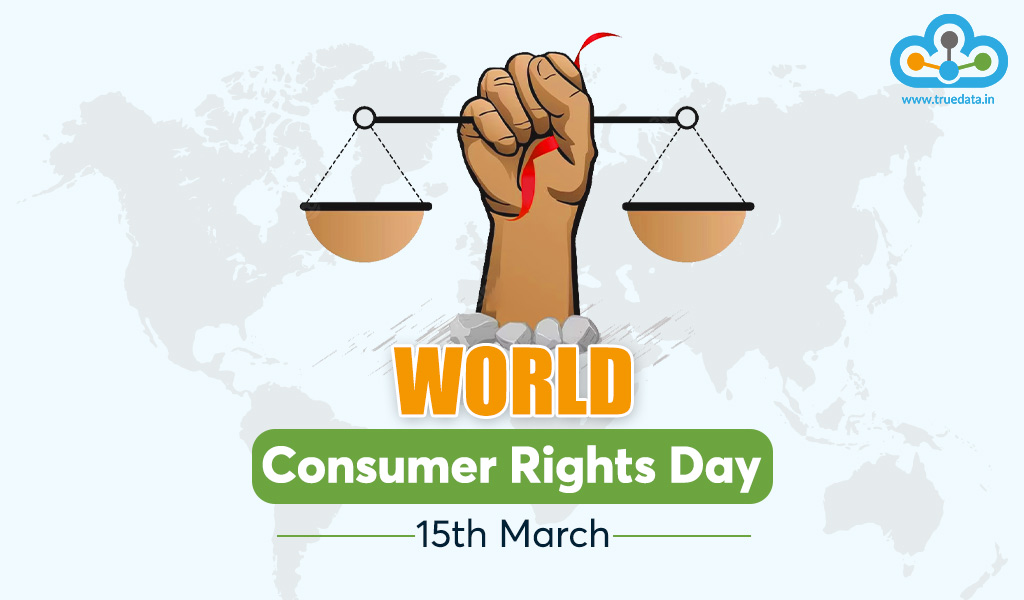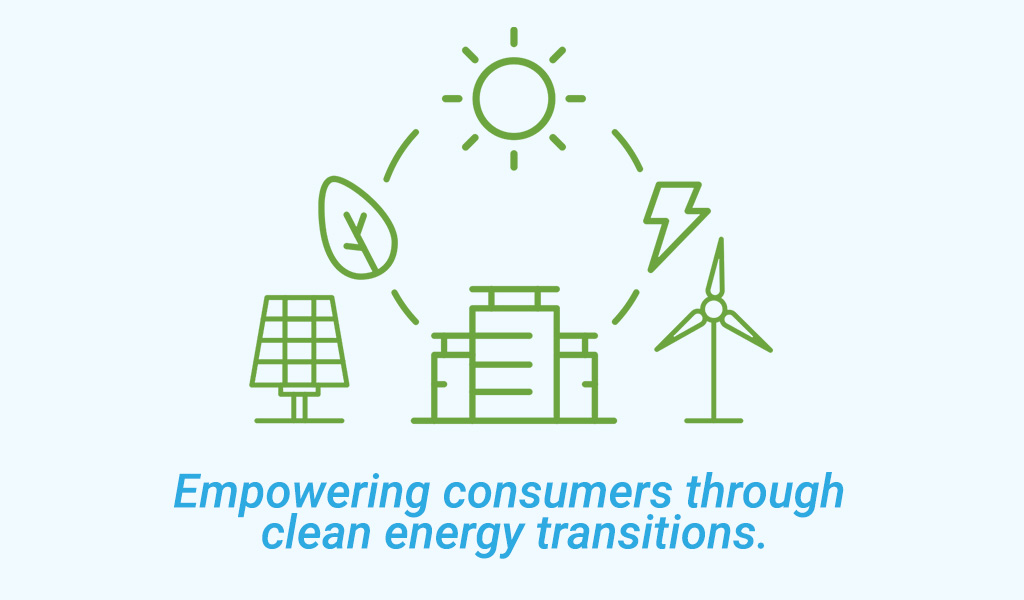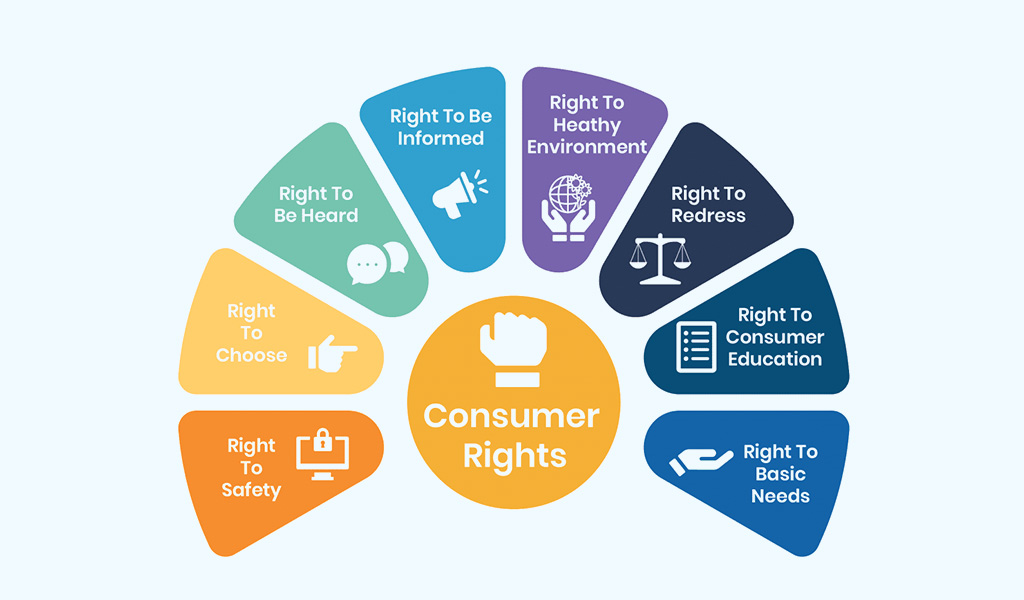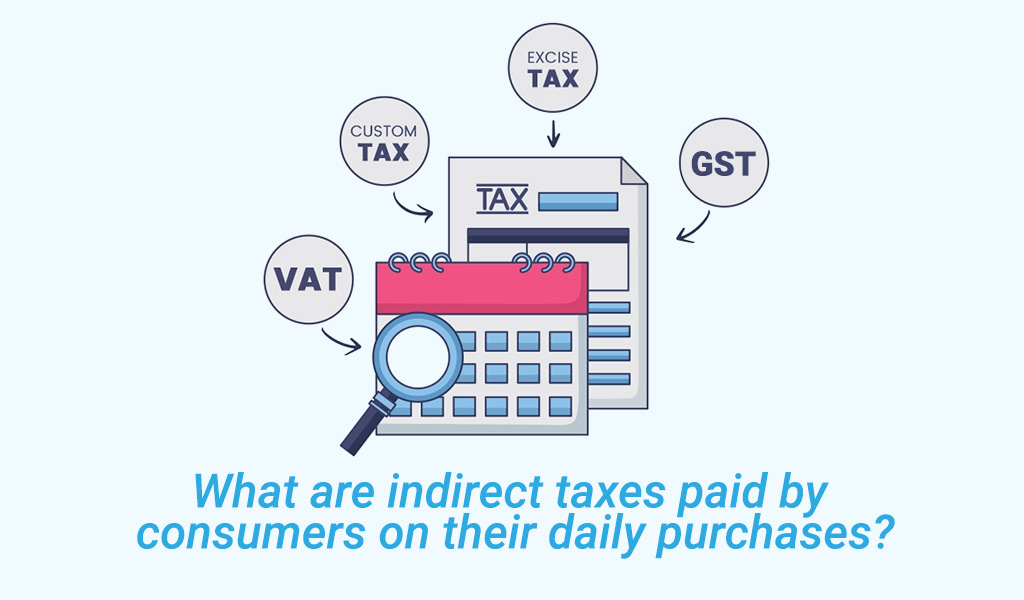 The world has become a big marketplace over the past years due to increasing globalisation and interconnected global supply chains. In this fast pacing industrialisation and global market, the average consumer may often find himself lost and may not be aware of their rights. World Consumer Rights Day celebrated every year asserts the key mantra that on any day, the consumer is the ultimate king. Given here are the basic details of World Consumer Rights Day and what it means for Indian consumers. Read More: FMCG Sector in focus-Stocks to watch out for
The world has become a big marketplace over the past years due to increasing globalisation and interconnected global supply chains. In this fast pacing industrialisation and global market, the average consumer may often find himself lost and may not be aware of their rights. World Consumer Rights Day celebrated every year asserts the key mantra that on any day, the consumer is the ultimate king. Given here are the basic details of World Consumer Rights Day and what it means for Indian consumers. Read More: FMCG Sector in focus-Stocks to watch out for
 World Consumer Rights Day is observed every year on March 15th to raise awareness about the rights of consumers and to promote consumer protection across the globe. In India, National Consumer Rights Day is observed on 24th December as this was the day when the Consumer Protection Act in India came into effect in 1986. The key objective of World Consumer Rights Day celebrated on 15th March is to signify the international consumer movement and that consumers across the world should be heard, respected, and protected. The day aims to highlight the important role that consumers play in the markets and the need for businesses and governments to address that. This day also acts as an opportunity for recognising the accomplishments and achievements of various consumer organizations, activists, and advocates who have been working tirelessly to promote and protect consumer rights across their countries.
World Consumer Rights Day is observed every year on March 15th to raise awareness about the rights of consumers and to promote consumer protection across the globe. In India, National Consumer Rights Day is observed on 24th December as this was the day when the Consumer Protection Act in India came into effect in 1986. The key objective of World Consumer Rights Day celebrated on 15th March is to signify the international consumer movement and that consumers across the world should be heard, respected, and protected. The day aims to highlight the important role that consumers play in the markets and the need for businesses and governments to address that. This day also acts as an opportunity for recognising the accomplishments and achievements of various consumer organizations, activists, and advocates who have been working tirelessly to promote and protect consumer rights across their countries.
 Every year the focus of World Consumer Day is on a particular theme and this year the theme is "Empowering consumers through clean energy transitions.". The world is moving towards cleaner energy at a rapid pace and World consumer Day further asserts the urgent need to adopt cleaner and sustainable energy to protect the future of mankind. The aim is to support the customers to meet their ultimate goals of the net zero carbon target and to support the customers in the cost of living crisis that is prevailing in many parts of the world. Many major economies are already facing the energy crisis which is further enhanced by first the Covid pandemic and then by the Russia-Ukraine war that has been going on for more than a year. This has damaged the supply chains across the globe severely and forced many countries to fall back on their reliance on fossil fuels. This has also given rise to many ancillary crisis like the refugee crisis, food security crisis, increasing inflation, and more. It is estimated that approximately 81% of the surveyed members are forced to adjust their lifestyles and budgets to meet the increasing cost of living and pay their energy bills. To reinforce the need for cleaner energy and enable the ways for a smoother transition from greenhouse gases to sustainable energy, the various member groups of Consumers International as well as other partners will be holding events, programmes, and campaigns during the year with the theme in focus.
Every year the focus of World Consumer Day is on a particular theme and this year the theme is "Empowering consumers through clean energy transitions.". The world is moving towards cleaner energy at a rapid pace and World consumer Day further asserts the urgent need to adopt cleaner and sustainable energy to protect the future of mankind. The aim is to support the customers to meet their ultimate goals of the net zero carbon target and to support the customers in the cost of living crisis that is prevailing in many parts of the world. Many major economies are already facing the energy crisis which is further enhanced by first the Covid pandemic and then by the Russia-Ukraine war that has been going on for more than a year. This has damaged the supply chains across the globe severely and forced many countries to fall back on their reliance on fossil fuels. This has also given rise to many ancillary crisis like the refugee crisis, food security crisis, increasing inflation, and more. It is estimated that approximately 81% of the surveyed members are forced to adjust their lifestyles and budgets to meet the increasing cost of living and pay their energy bills. To reinforce the need for cleaner energy and enable the ways for a smoother transition from greenhouse gases to sustainable energy, the various member groups of Consumers International as well as other partners will be holding events, programmes, and campaigns during the year with the theme in focus.
 Consumer rights in India are protected under the Consumer Protection Act, 1986 with many amendments in this regard, the latest being in 2019. The Act provides for the establishment of consumer protection councils right from the grassroots level up to the national level to promote and protect consumer rights. The rights conferred upon consumers under this Act include,
Consumer rights in India are protected under the Consumer Protection Act, 1986 with many amendments in this regard, the latest being in 2019. The Act provides for the establishment of consumer protection councils right from the grassroots level up to the national level to promote and protect consumer rights. The rights conferred upon consumers under this Act include,
 The indirect tax revenue is a huge part of the tax collection from the state as well as the central government. Indirect tax is collected on the manufacture and sale of goods and services in the country as well as their import or export. Some of the major taxes that consumers are required to pay on their daily purchases include
The indirect tax revenue is a huge part of the tax collection from the state as well as the central government. Indirect tax is collected on the manufacture and sale of goods and services in the country as well as their import or export. Some of the major taxes that consumers are required to pay on their daily purchases include
These taxes are part of the MRP that the consumer pays which is determined to be the final price of the goods or services purchased by them. MRP is the Maximum Retail Price beyond which the sellers or dealers cannot charge the customers for the particular product. It is determined based on the guidelines set by the State and the Central government and has to be adhered to by all the manufacturers and sellers in the country. Consumers are also often charged a service fee or a service charge for their spending in a restaurant. There was a long-standing dispute where restaurants equated the service charge as a mandatory payment in line with the indirect charges levied by the government. However, the government through its clarification in 2017 has notified that the service charge is not a mandatory payment, and if a consumer is not satisfied with the service of the restaurant, they can pay a reduced amount or forego it altogether. These little nuances are the rights that the average consumer needs to be aware of and protect their interests. The focus of World Consumer Day is to ensure maximum consumers are aware of all their rights available under the law and ensure the successful implementation of the same through various agencies.
World Consumer Day may not be celebrated with the same pomp and scale as other important days and festivals across the globe but it is nevertheless achieving important milestones in consumer awareness and consciousness, especially in the drive for cleaner energy which is also the focus of the current year’s theme. Let us know what you think of World Consumer Day and if this article was successful in giving an overview of your rights as a consumer in your country. Also, do let us know if you need more information on the indirect taxes in the country and we will discuss them in detail. Till then Happy Reading!

Mutual fund investments have simplified greatly with just a tap on your smartpho...

The second half of the year is always buzzing with excitement of festivals, fami...

Another year, another Union Budget. On 1st February 2026, the Modi government pr...